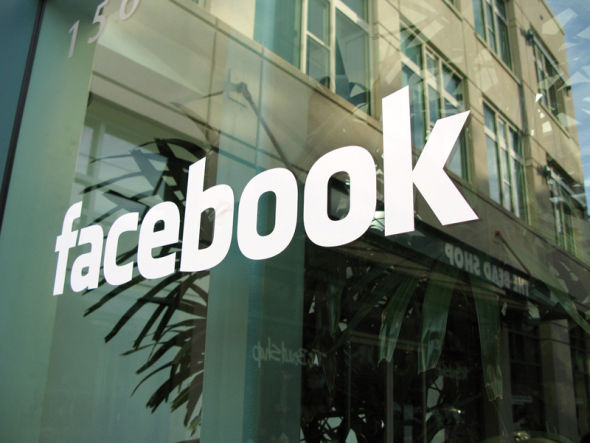
Facebook的指责大战即将开始。
在史上规模最大的IPO结束之后,Facebook5月21日首日开盘,但是股价重挫11%,这激起了股东们的不满,从此次IPO的主销商摩根士丹利(Morgan Stanley),到Facebook的贪婪再到纳斯达克股票市场,似乎每个环节都没能逃过股东们的指责。
美国波士顿富得利信托(Fiduciary Trust Co)首席投资办公室人员Michael Mullaney表示,这就像是一伙人开火射击,但是没有一个人能够打中。他本人作为负责经营95亿美元的资金。他说,他把Facebook放到了客户的订单里。主销商摩根士丹利错误的估计了市场需求,而纳斯达克则是纯属执行失误。
但是Michael Mullaney表示,承担主要责任的还应该是摩根士丹利。Facebook雇佣33家承销公司来发行这160亿美元的股票而摩根士丹利是是主销商。一位知情人士表示,摩根士丹利与Facebook的高管在5月17日IPO前一天决定提高股票发行数量,并上调股票发行价格,而完全不顾其他承销商的意见。但是透露此信息的人士拒绝透露自己的姓名,因为整个过程都是秘密进行的。有人表示,在整个IPO过程中,摩根士丹利除了与摩根大通和高盛集团偶尔沟通意见外,几乎从未听取其他公司的意见。
美国辛辛那提的资产管理公司Fifth Third首席投资办公室人员负责监管15亿美元的资金,在此次IPO中也购买了Facebook的股票,他表示,他们都高估了人们高昂的情绪,也可能是错误的解读了目前的市场气氛。
互相指责的游戏
Facebook将发行规模上调了25%至4.844亿股,股价范围则从28-35美元之间提高到了34-38美元。如果Facebook坚持原来的发行规模和价格,那么股东们在Facebook的上市后的第一天可能会不会遭遇这样的打击。而不是像现在这样,股价在首发日就出现了一些变动,而这完全是由于摩根士丹利人为地干预,不希望它跌破发行价。昨日,Facebook股票收盘价为每股34.03美元。
一些股东表示,他们感觉自己被承销商们误导了。根据一位不愿透露姓名的伦敦基金经理人表示,银行家们高估了市场需求,导致他分到的股票数量超出了他的预期,最终拿到的股票要比预期多出40%。他在交易的第一天就卖掉了大部分的股票。
参与整个过程的一位人士表示,上调发行价格的决定反映了市场需求。高盛集团发言人Michael DuVally、摩根士丹利发言人Pen Pendleton以及摩根大通的发言人Jennifer Zuccarelli对此都未予置评。
据知情人士透露,摩根士丹利和Facebook都认为,目前IPO出现这样的市场表现纳斯达克的电脑系统故障是原因之一。纳斯达克的交易平台被取消订单以及各种更新占满,造成系统超负荷,导致交易服务器不能完成拍卖程序,为股东们开户。美国证券交易委员会表示将审查这一交易过程。
开盘竞价
纳斯达克的高管Robert Greifeld 在5月20日接受电话采访时对记者说,交易日当天由于技术故障造成的推迟对于Facebook的股价不会造成影响,在开盘竞价过程中,从经纪人收到确认信息以后,Facebook的股价就没有下跌。除了Greifeld的说法,纳斯达克发言人Robert Madden对此没有做任何评论。
纳斯达克在昨天的一份公开声明中表示,纳斯达克在当天下午1:50将拍卖程序IPO Cross的订单信息都包括交易过程以及订单的取消信息,都发送到了经纪人手中。而Facebook的股价是在1:50以后才开始下跌的。
After one of the most anticipated initial public offerings in history, Facebook’s 11 percent drop yesterday prompted investors to fault everything from Morgan Stanley’s role as lead underwriter, to the company’s greed and the Nasdaq Stock Market.
“It was like the gang that couldn’t shoot straight,” said Michael Mullaney, who helps manage $9.5 billion as chief investment officer at Fiduciary Trust in Boston. He said he placed Facebook orders for clients. “The underwriters mis- estimated what actual demand was, and there was pure execution failure coming out of the Nasdaq.”
Taking the most heat is Morgan Stanley, said Mullaney. The bank was lead underwriter among the 33 firms Facebook hired to manage the $16 billion sale of stock. The bank decided with Facebook executives to boost the size and price days before the May 17 IPO, ignoring advice from some co-managers, said people with knowledge of the matter, who declined to be identified because the process was private. Morgan Stanley (MS) talked with few of its fellow underwriters aside from JPMorgan Chase & Co. (JPM) and Goldman Sachs Group Inc. (GS) throughout the IPO, one person said.
“They overplayed the enthusiasm and probably just misread the atmosphere of the marketplace,” said Keith Wirtz, who oversees $15 billion as chief investment officer at Fifth Third Asset Management in Cincinnati and bought some stock in the IPO.
Blame Game
Facebook increased the number of shares being sold in the IPO by 25 percent last week to 421.2 million and raised its asking price to a range of $34 to $38 from $28 to $35. Had Facebook kept the original terms, investors may have had a better shot at a first-day pop. Instead, the stock was little changed in its debut because Morgan Stanley intervened to prevent it from falling below the IPO price. The shares closed at $34.03 yesterday.
Some investors say they felt misled by the underwriters. According to one London-based fund manager who asked not to be named, bankers indicated demand was so strong that he placed a bigger order than he thought he would get, leaving him with 40 percent more Facebook shares than anticipated. He sold most of that stock on the first day of trading.
The decision to boost the price range reflected the demand in the market, said a person involved in the process. Michael DuVally, a spokesman for Goldman Sachs, and Pen Pendleton, a spokesman for Morgan Stanley, declined to comment. Jennifer Zuccarelli, a spokeswoman for JPMorgan, declined to comment.
Opening Auction
Morgan Stanley and Facebook consider problems with Nasdaq OMX Group Inc.’s computer systems among the reasons for the IPO’s performance so far, according to people familiar with the matter. Nasdaq’s trading platform was overwhelmed by order cancellations and updates that made the stock-market operator unable to finish the auction required to open trading. The U.S. Securities and Exchange Commission said it will review the trading.
Nasdaq Chief Executive Officer Robert Greifeld said on a call with reporters on May 20 about the glitch that the opening delay “had no apparent impact on the stock price,” noting the share decline began after all brokers had received confirmation about their trades in the opening auction. Robert Madden, a spokesman for Nasdaq OMX, declined to comment beyond Greifeld’s statement.
Nasdaq said in a notice yesterday it delivered all outstanding execution and cancellation messages to brokers for their IPO cross orders at 1:50 p.m. Facebook declined 5.9 percent after 1:50 p.m.

